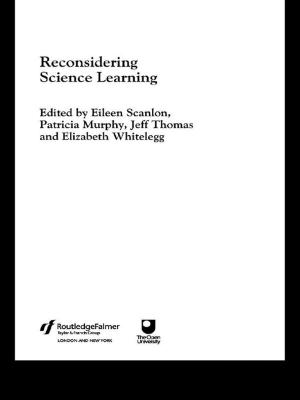Business and Buddhism
Business & Finance, Human Resources & Personnel Management, Organizational Behavior, Management & Leadership, Leadership, Management| Author: | Joan Marques | ISBN: | 9781317663423 |
| Publisher: | Taylor and Francis | Publication: | March 12, 2015 |
| Imprint: | Routledge | Language: | English |
| Author: | Joan Marques |
| ISBN: | 9781317663423 |
| Publisher: | Taylor and Francis |
| Publication: | March 12, 2015 |
| Imprint: | Routledge |
| Language: | English |
Business and Buddhism explores alternative ways of leading in the aftermath of the Great Recession and the many stories of fraud and greed that emerged. The book explores shifts in business perspectives as more value is placed on soft skills like emotional intelligence and listening, and introduces the reader to the principles in Buddhist philosophy that can be applied in the workplace.
Buddhist practices are increasingly understood as spiritual, rather than religious per se. In fact, Buddhism is alternately referred to as a philosophy or psychology. In this book, Marques explores the value of applying the positive psychology of Buddhism to work settings. She outlines the ways in which it offers highly effective solutions to addressing important management and organizational behavior related issues, but also flags up critical areas for caution. For example, Buddhism is non-confrontational, and promotes detachment. How can business leaders negotiate these principles in light of the demands of modern day pressures?
The book includes end of chapter questions to promote reflection and critical thinking, and examples of Buddhist leaders in action. It will prove a captivating read for students of organizational behavior, management, leadership, diversity and ethics, as well as business consultants.
Business and Buddhism explores alternative ways of leading in the aftermath of the Great Recession and the many stories of fraud and greed that emerged. The book explores shifts in business perspectives as more value is placed on soft skills like emotional intelligence and listening, and introduces the reader to the principles in Buddhist philosophy that can be applied in the workplace.
Buddhist practices are increasingly understood as spiritual, rather than religious per se. In fact, Buddhism is alternately referred to as a philosophy or psychology. In this book, Marques explores the value of applying the positive psychology of Buddhism to work settings. She outlines the ways in which it offers highly effective solutions to addressing important management and organizational behavior related issues, but also flags up critical areas for caution. For example, Buddhism is non-confrontational, and promotes detachment. How can business leaders negotiate these principles in light of the demands of modern day pressures?
The book includes end of chapter questions to promote reflection and critical thinking, and examples of Buddhist leaders in action. It will prove a captivating read for students of organizational behavior, management, leadership, diversity and ethics, as well as business consultants.















